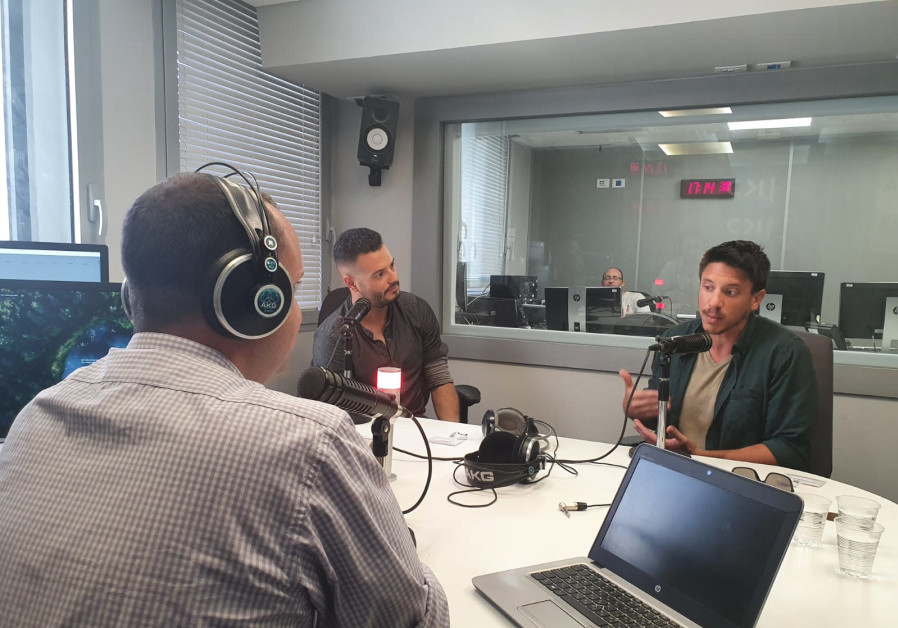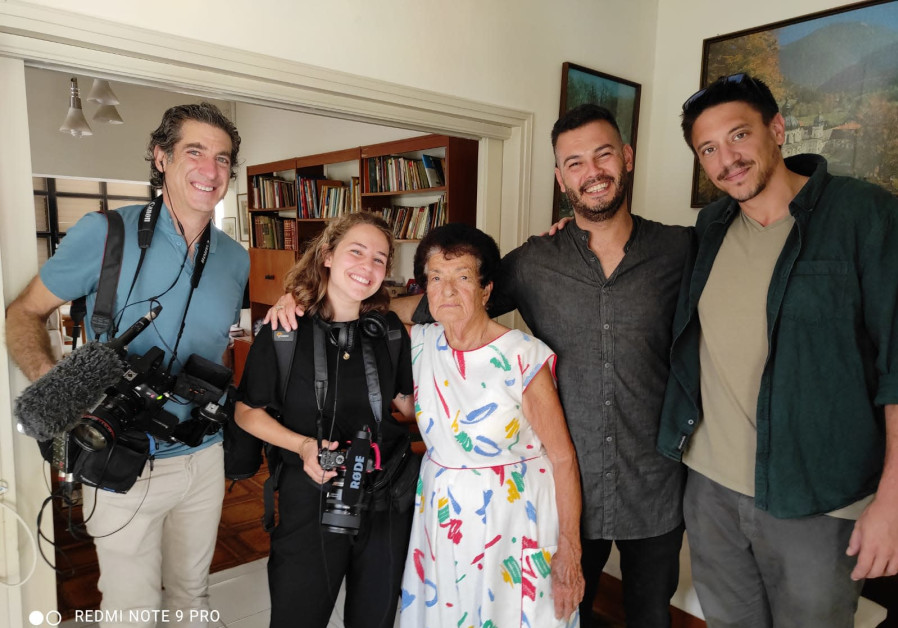For six minutes and 28 seconds, Sameh Zakout and Uriya Rosenman let out all the steam that exists between Arabs and Jews in Israel. In an intense video clip devoid of any political correctness, Rosenman hurls racist remarks at Zakout who then angrily responds. Sentence after sentence, even after decades of the existence of the state of Israel, the hatred is still raw.
Titled “Let’s Talk Straight,” the clip is powerful and resonates with many Israelis, both Jews and Arabs. Acting as a mirror, the text contains notions that have been heard or thought throughout Israeli society.
“I’m not racist, we both have no other country and this is where the change begins,” Zakout concludes in the video.
The video was released last month, on the day a ceasefire was reached between Israel and Hamas in Gaza after eleven days of intense fighting. Throughout the conflict, there was also violent unrest between Arabs and Jews in cities within Israel. The days were filled with political uncertainty as lawmakers struggled to form a government after four elections in just over two years.
While people advised them to delay the release for quieter times, Rosenman and Zakout decided to go ahead and post the video in one of the most turbulent periods Israel has experienced in recent years. The post went viral and led to a variety of reactions. Many were supportive, others were less receptive to the message.
Rosenman is a 31-year-old Israeli educator and social activist. In 2018, he was inspired by the song “I’m Not Racist” by Joyner Lucas, the American hip-hop artist who rapped about the racial divide in the US.
“I decided to focus on the issue that touches me most, it interested me the most to explore the narratives I grew up on regarding the Israeli-Arab conflict,” said Rosenman in a joint interview with Zakout, “I realized I actually didn’t know much, not about the Palestinian narrative and not about extreme narratives in Israel.”
“When I hear an Arab accent, I am always suspicious,” Rosenman raps in the video. As Rosenman spews racist content at Zakout, the Arab rapper shakes his legs, agitated. He later responds with his own monologue, opening by saying: “You Jews have forgotten what it’s like to be a minority.”
It is the inner dialogue many Jews and Arabs have, but don’t often share.
Rosenman had a typical Israeli upbringing. Coming from a self-described patriotic, Zionist family, he served as an officer in an elite unit of the Israel Defense Forces (IDF). He didn’t have much interaction with Arabs growing up. As he grew older, Rosenman became aware of the complexities within Israel. Throughout his journey to create a piece based on Lucas’ rap, Rosenman collected sentences he had heard over the years and specifically in the period where he crisscrossed the country talking to Arabs and Jews.
“I’ve heard these racist remarks thousands of times,” said Rosenman. “They may be based on certain truths. But the truth is more complicated than that; it’s not one-sided.”
“The project is here to show us: we are all racist to a certain degree. Whether we are willing to admit it or not, many Israeli Jews sound like this,” he added.


With almost a complete text in hand, his quest eventually led him to Zakout, an actor and musician born in the mixed Arab-Jewish city of Ramla.
“I’ve experienced this racism since childhood,” said Zakout. “For me this was about bringing to light what was always hidden – all the concealed racism, the political correctness which killed the authenticity and didn’t allow for dialogue between people.”
A few days after the video was posted, Zakout was approached by religious Jews who recognized him. They gave him a hug and said they were sorry. “I was speechless,” he said, adding that he was taken aback by the countless times he received positive feedback.
Prior to the release, the normally outgoing Zakout said he was scared about the video going public.
“Some of the things in the text were things that I hid inside myself, that I never shared, fears about what the other side will think of me,” he said. “This was me unmasked, for the first time. It was stupid of me to be afraid. My fear turned into happiness.”
Zakout believes he has managed to portray what many Arab citizens of Israel feel and experience on a daily basis.
Of course, there were negative reactions and more racism. Both Rosenman and Zakout feel those voices are drowned out by the outpouring of positive feedback they have received.
“We want to continue to spread the message about cooperation between Arabs and Jews,” said Rosenman, “The young generation hopes for different leadership, a leadership that believes in being moderate and sees the complexities for the benefit of the greater good.”

Simultaneous to the release of the video, Zakout and Rosenman opened a Facebook group also titled “Let’s Talk Straight.” The group is meant to be a channel for Jews and Arabs to openly speak to each other. Over 3,400 people have joined.

Simultaneous to the release of the video, Zakout and Rosenman opened a Facebook group also titled “Let’s Talk Straight.” The group is meant to be a channel for Jews and Arabs to openly speak to each other. Over 3,400 people have joined.
“It’s an attempt to plan a shared and beneficial future,” Rosenman said.
In recent years, the discourse in Israel has become increasingly polarized and intolerant to different opinions. After decades in which the right-wing has dominated politics and society has increasingly leaned more to the right, it has become more challenging to voice different opinions. As the Israeli left has shrunk, talk of peace has become almost extinct. “Let’s Talk Straight” offers a different approach on how to reach coexistence.
People who talk about peace or about finding a solution to the conflict with the Palestinians are often accused of being anti-Zionist, or leftists who are less loyal to Israel.
“My patriotism, my Zionism, is not hurt by these accusations,” said Rosenman, who refers to online comments less sympathetic to the project’s message.
Perhaps the greatest achievement is the personal friendship forged between Rosenman and Zakout.
“Uriya is stuck with me now,” Zakout laughs as they fist-bump each other.
“People warned me that I was being naïve trusting this dangerous Arab,” Rosenman chuckled, with a sense of humor only good friends share.
While a new Israeli coalition government with a wide range of parties was sworn in earlier this month, the discourse will likely take longer to change. Projects like “Let’s Talk Straight” aim to speed up that process. Still, Rosenman and Zakout are realistic about their prospects and about how long it will take.
“With persistence and consistency, we will strive for the change we wish for,” said Rosenman. “This is a marathon, not a sprint run.”
